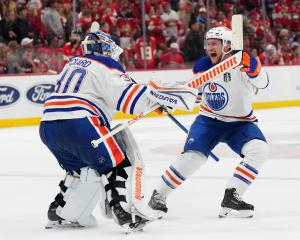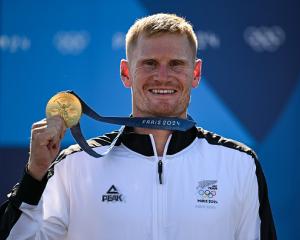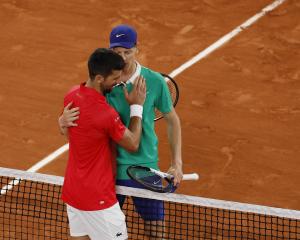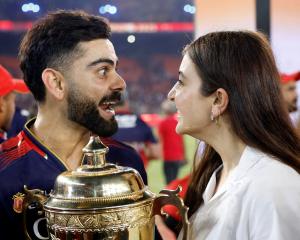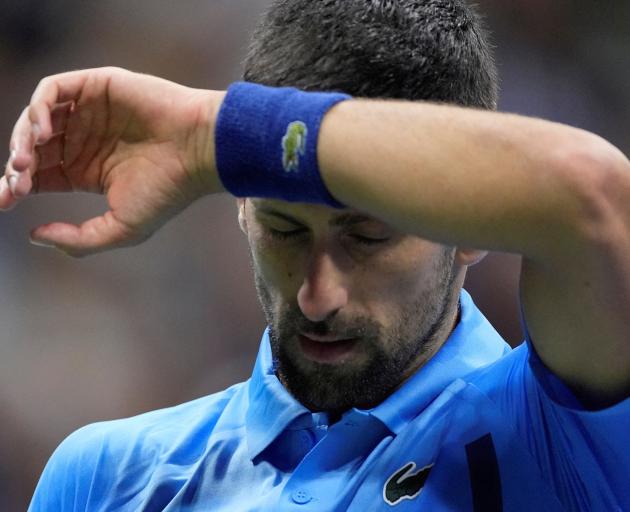
This year's US Open has seen the last two men's champions exit in the early rounds on successive nights, the tournament's longest-ever match, the latest-ever start time for any match and latest-ever finish for a women's match.
Top seeds Jannik Sinner and Iga Swiatek continue to blaze a trail through the draws, easing into the quarter-finals of a tournament marked by almost daily upsets with a minimum of fuss. Sinner disappointed a partisan crowd with a 7-6(3) 7-6(5) 6-1 win over Tommy Paul in an entertaining fourth-round tie after Swiatek had beaten Liudmila Samsonova 6-4 6-1.
But Olympic gold medallist Novak Djokovic said he "felt out of gas" after his US Open title defence ended after three late matches at Arthur Ashe Stadium in New York.
World No 3 Carlos Alcaraz said physical and mental fatigue contributed to his second-round collapse after securing the Roland Garros and Wimbledon titles and a silver medal run in Paris left him low on energy.
The shock exits, long matches and late nights should serve as a warning that the scheduling of events needs a rethink, the Professional Tennis Players Association, a player advocate group that Djokovic co-founded, told Reuters.
"There is no question about how spent mentally and physically players are. The Olympics have added to that," said Romain Rosenberg, PTPA's deputy executive director.
"Players have come to us about exhaustion, mentally and physically. It's just too long of a season," he said, adding that several top-10 players, both men and women, have raised concerns with the PTPA.
The season for men and women consists of the four majors and a required minimum number of top-tier tournaments that they must play to earn points in the standings.
The WTA Tour expanded the number of required top-level non-major tournaments for women this year, but said in a statement that injuries have not increased from last year.
The ATP Tour did not respond to a request for comment.
TIGHT SCHEDULE
The Olympics did not earn players any points but many still participated, leaving them with less in the tank at Flushing Meadows.
"The tennis schedule is so tight ... I took a little break after the Olympic Games. I thought it was enough," Alcaraz said after his defeat to Dutchman Botic van de Zandschulp. "Probably it wasn't enough."
Djokovic echoed that sentiment after his title defence was cut short by Australian Alexei Popyrin the following night.
"I spent a lot of energy winning the gold, and I did arrive to New York just not feeling fresh mentally and physically," he said.
PTPA's medical director Robby Sikka believes late-night matches are playing a part, as PTPA data shows players are 25% more likely to be injured playing at night. More than 11% of Grand Slam matches started after 7pm last year, up from 6.6% in 2018, Sikka said.
"The romanticism of late night tennis in New York, it's time to move past that," said Sikka, who believes the sport takes a greater toll than even five or 10 years ago due to higher serve velocity and ball spin.
At the US Open, night matches featuring the sport's top stars have created an atmosphere "unmatched in all of sport" and led to "some of the most memorable matches in the history of tennis," Tournament Director Stacey Allaster said.
The tournament seeks to balance fairness to players with fan experience and offers services to aid athlete recovery after late matches, but organisers are regularly evaluating changes, she said.
Some particularly late contests have sparked criticism from current and former players.
"The tennis scheduling situation is a total mess. It looks so amateurish having matches going on at 2, 3, 4am," three times grand slam champion Andy Murray said on X, directing his message at all four majors. "Sort it out."




